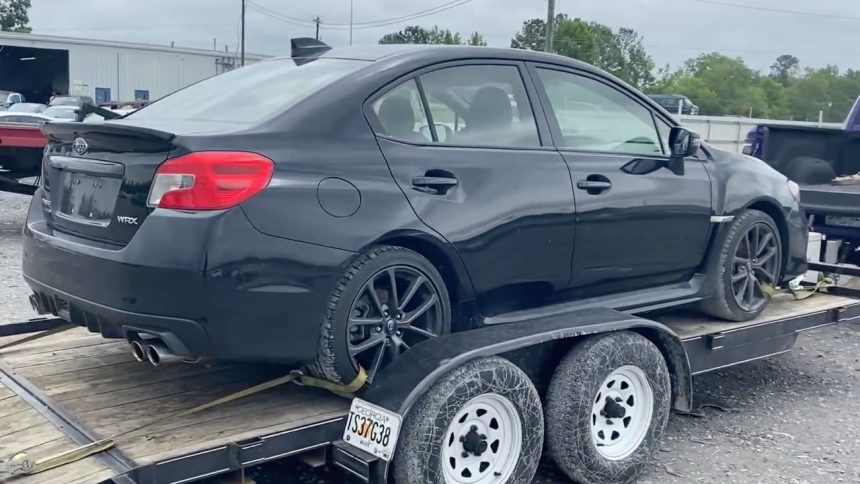Is it worth your time to get a bank-repossessed car? That’s one of the biggest dilemmas for car buyers and opportunists looking for cheap cars. You must have encountered these deals on social media of late-model cars going for painfully low prices, which got you thinking: is this a risk-free deal? Well, in my books– cheap is often risky. But here’s the thing: some of these cars are often attached to financial institutions with a record. How bad can they be?
Well, I’ve bumped into many of these questions in car forums on the internet and social media. I decided to compile some of the responses from those posts, from the average know-it-all to those who’ve gone through the process of owning such cars. After that, you can judge for yourself if it’s something you’d wish to get involved with.
What’s a Bank-Repossessed Car
It’s as simple as it sounds. A bank-repossessed car is a vehicle that was repo-ed from a potential buyer who’d acquired a car from a financial institution through a loan and, for one reason or another, fell behind on their car payments to the said loan granter.
After the agreed-upon duration of the loan has passed, the bank may hire an auctioneer to retrieve its assets by getting hold of the car (sometimes forcefully) and selling it cheaply to cover its part of the agreed loan. This is often a loss to the financial institution but worse for the previous car owner.
Reasons Why Getting a Bank-Repossessed Car Could Be a Bad Idea
Everything has a good and bad side. And when it comes to getting a bank-repossessed car, there seems to be more than meets the eye. The following are reasons collected from popular forums and social media groups why getting such cars might be a bad idea.
High Possibility of Vehicle Tempering
Here’s the thing: No one enjoys getting repoed, and there’s always a good chance the previous owner meddled with the vehicle before the auctioneers came knocking. According to one commenter on that query on a popular automotive Facebook group, one salty defaulter actually yanked out a gearbox and replaced it with a dead one.
A salty defaulter isn’t out of the ordinary, and sensors, stereos, and expensive parts might have been removed in an effort to get even with aggressive auctioneers. Also, if the vehicle was forcefully retrieved (no keys), it’s likely it was unprofessionally towed and could potentially have issues with the drivetrain.
Unsettled Legal Battles With Previous Owner
Depending on the financial institution behind the repossessed car, lawful processes might have been skipped to sell the car and salvage funds forcefully. Here’s the thing: The previous owner could have gone to court to stop the financial institution from selling the car due to differences in the repayment contract.
In case the financial institution (rogue) went ahead and sold the car to you, ignoring a court order – you could potentially lose your car and money if the previous owner wins the case. With that in mind, do your due diligence before committing your hard-earned money into the bank-repossessed car.
Chaotic Owner Transfer Process
According to one commenter in a Facebook post about bank-repossessed cars, transferring ownership from such deals is a bit problematic for the government institution concerned. Due to the nature of the vehicle transfer, the authority mandated with the task often sluggishly clears such vehicles due to the possibility of legal issues. I feel they rightfully need to do this to protect any unresolved disputes with the previous owner.
Poor Maintenance
It goes without saying that if someone cannot pay their monthly car premiums, then there’s a good chance they have also missed basic maintenance services like oil changes and drivetrain management.
If you get your hands on such a car, do a deep check-up with a qualified professional to save you from dealing with expensive repairs down the road (crucial on top-tier cars). This is not something you’d want to do on your own, regardless of your experience owning cars.
Salty Previous Owner
We are humans, and for that, it’s normal for some individuals to get overly salty when they lose things, regardless of whose fault it might have been. While you might be an innocent party acquiring the bank-repossessed car, the previous owner might often be infuriated by the events that led them to lose their vehicle, especially when they physically bump into the car after it was repossessed.
Vehicles are personal property, and there’s a possibility that the documents and personal effects of the previous owner were also salvaged during the repo process. Depending on the individual’s sanity, they might break into your newly acquired car, damage it, or worse, assault the occupants of the vehicle to get even. For your safety and that of any regular occupants/users, do your due diligence to determine the nature of the repo exercise.
Bank Repossessed Cars Can Be Good Deals
Not all bank-repossessed cars are bad. According to a banker from a reputable institution, most car repossession exercises go smoothly without a hitch. In most instances, the previous owners drive the car back to the loan-granter to avoid inconveniences or embarrassment caused during the repossession exercise.
It’s often the few isolated cases that get a lot of attention and ruin the reputation of the entire process. Cars, houses, and businesses get auctioned daily, and the process is often smooth—if you are lucky, you’ll bump into a good deal.
PS: The discussions above have been retrieved from popular automotive forums and social media pages across the internet. They are not the opinions of Motindechu staff. If you find yourself in such a situation, take your time and consult an experienced professional. Separate investigations should also be conducted to avoid getting burned.










